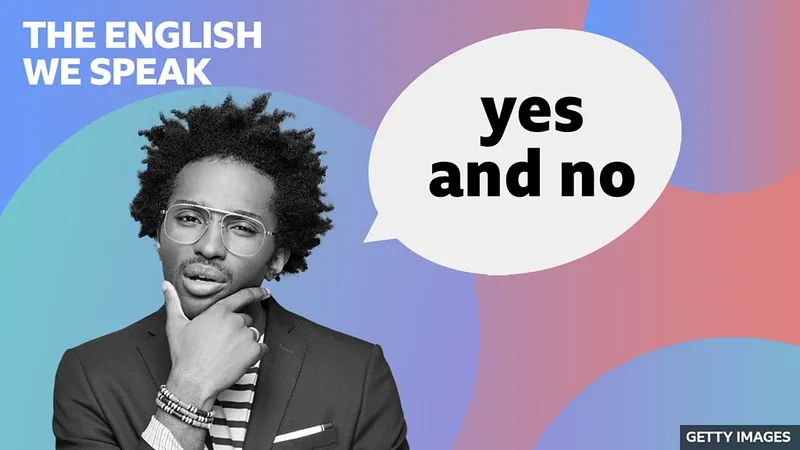Feifei Hello, and welcome to The English We Speak with me, Feifei…
Neil …and hello, I am Neil. Welcome back from your holiday, Feifei.
Feifei Thanks. To be honest, I’m very glad to be back!
Neil What do you mean? You did have a nice time, didn’t you?
Feifei Yes and no.
Neil Yes, and no?! Well, which one was it? Yes or no?
Feifei No, Neil. I said ‘yes and no’. We use this expression when we want to partly agree and partly disagree. So, what I meant was that I enjoyed my holiday a bit, but not completely. There were some ‘issues’ with it. For one, I couldn’t get any work done!
Neil Wait – you didn’t enjoy it because you couldn’t work? You do know that you’re supposed to relax when you’re on holiday?
Feifei Yes and no. There’s always time to do some work! Do you think there’s something wrong with that?
Neil Yes and no. We can talk more about that right after these examples.
Examples When I asked her if she was still angry with me, she just said ‘yes and no’!
Yes and no! What kind of answer is that? Just tell me if you want to go out tomorrow.
The cricket coach just said ‘yes and no’ when she was asked if she was happy with the current team.
Feifei This is The English We Speak from BBC Learning English. We’re learning about the expression ‘yes and no’, which we use to answer questions and show that it’s not completely ‘yes’ or ‘no’. So Neil, you said that there’s something wrong with working on holiday?
Neil I said ‘yes and no’. I think it’s fantastic how hard you work – you’re an amazing professional. But we need to relax sometimes. In fact, relaxing can actually boost some people’s productivity.
Feifei That sounds fantastic!
Neil Great – so let’s go to the park!
Feifei Brilliant – I could bring my laptop to do some spreadsheets while I’m there. Is that a good idea?
Neil Definitely not. I’ll go and get a frisbee instead, and I’ll meet you at the park in 10 minutes.
Feifei OK. Bye, Neil!
Neil Bye.
